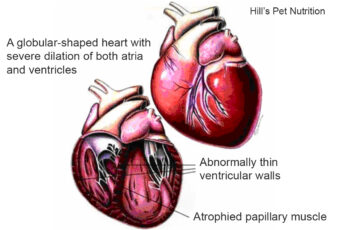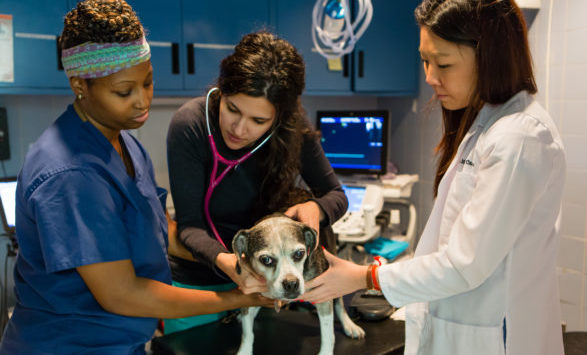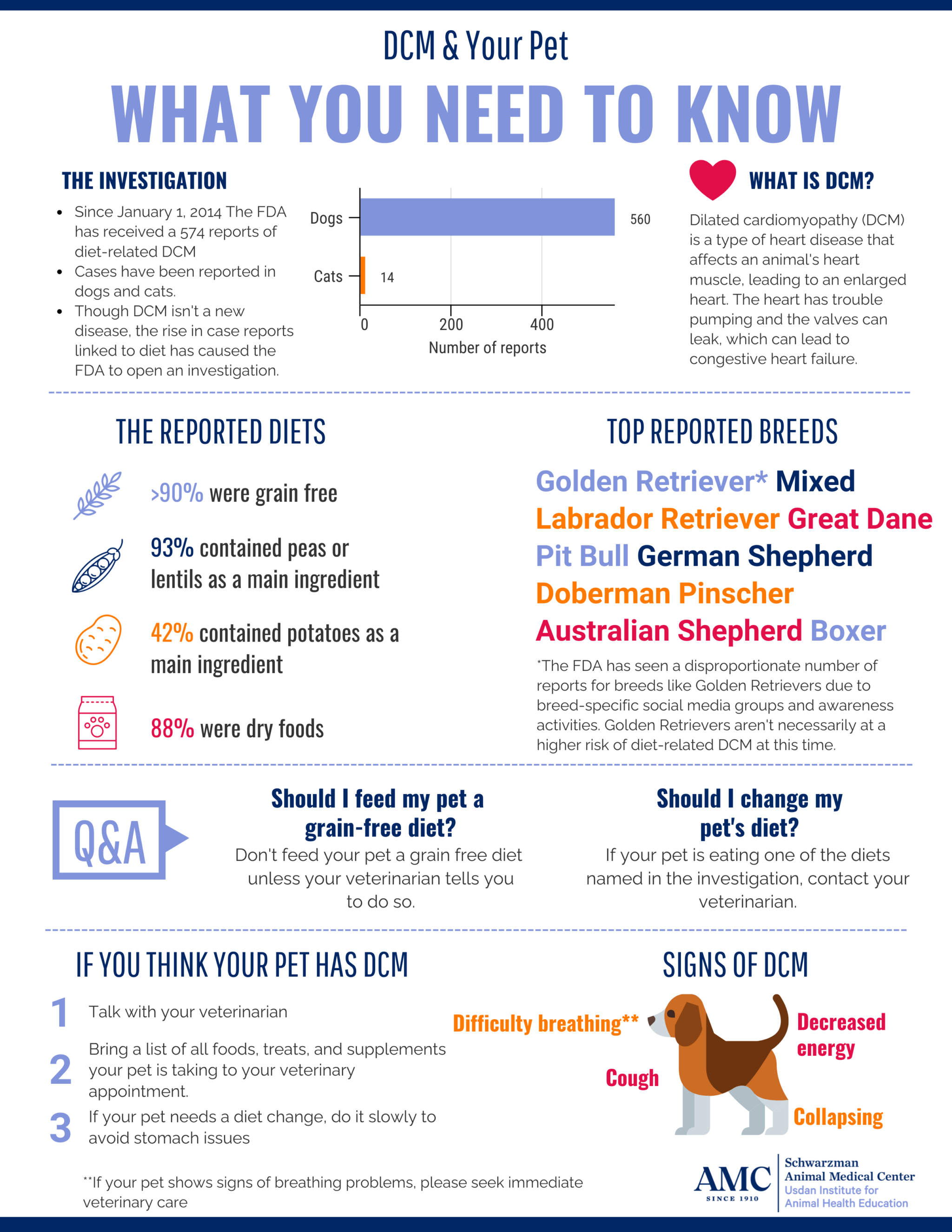Dilated Cardiomyopathy (DCM) in Dogs

Background
The term “cardiomyopathy” is used to describe diseases that affect the heart muscle. Dilated cardiomyopathy (DCM) is an acquired disease resulting in an enlarged heart due to the thinning of the heart muscle. As the heart muscle stretches and weakens, the inner chambers become dilated which decreases the heart’s ability to contract and pump blood properly. Heart valves, which control the blood flow between the chambers, may leak because the heart takes on an abnormal shape. Leaky valves plus poor heart muscle contraction cause a buildup of fluid in and around the lungs and in the abdomen. The fluid buildup as a result of impaired heart function is known as congestive heart failure.
Risk Factors
DCM is common in older, large-breed dogs. DCM has primarily been linked to a genetic predisposition in certain breeds which are prone to developing the condition:
- Boxers
- Doberman pinschers
- German shepherds
- Great Danes
- Irish wolfhounds
- Labrador retrievers
- Newfoundlands
- Saint Bernards
- Scottish deerhounds
Taurine deficiency may also be linked to DCM in breeds not genetically predisposed to developing the condition. A blood test can confirm whether your dog has a deficiency in this essential amino acid. For dogs diagnosed with taurine deficiency, oral supplementation can correct it.
In 2018, the FDA announced reports of DCM in dog breeds not commonly associated with the condition. A common factor amongst the reported cases was a diet high in legumes and pulses, many of which were labeled as “grain-free.” The specific connection between these diets and non-hereditary DCM is unknown, and the FDA has received reports associated with grain-containing diets as well. In most cases, legumes and pulses were high in the ingredients list, although there is currently no evidence to indicate they are inherently dangerous and have been used in pet foods for many years. Emerging research indicates that non-hereditary forms of DCM may be affected by a multitude of factors such as genetics, underlying medical conditions, and diet. As this is an ongoing, scientific investigation, pet owners should check with their veterinarians before making any changes to their dog’s diet.
Signs
Signs of DCM can depend on the breed, but may include:
- Loss of appetite
- Pale or bluish gums
- Difficulty breathing
- Coughing
- Abdominal distension
- Reluctance to move or exercise
- Weakness or collapse
- Fainting
Diagnosis
The echocardiogram is the diagnostic test for DCM. An echocardiogram is performed by a board certified veterinary cardiologist and uses sound waves to non-invasively create an image of the heart to measure the muscle wall’s thickness and assess the heart’s ability to pump. You may have this test performed on your dog because it is a breed at risk for DCM or your veterinarian may recommend the test when they detect an abnormal heart rhythm or a heart murmur. Your veterinarian may also recommend additional cardiac tests, such as a chest radiograph (x-ray) which can reveal an enlarged heart or fluid in the chest and/or abdomen, and an electrocardiogram (ECG), which can be used to detect an abnormal heart rhythm (arrythmia).
A diagnosis of DCM will start with your veterinarian performing a physical examination along with reviewing your dog’s medical history, breed, and clinical signs.
Treatment
If your dog has congestive heart failure from DCM, you will most likely be referred to a veterinary cardiologist to develop an individualized plan for with the goal of treatment to control the accumulation of fluid, improve the ability of the heart to contract, and dilate blood vessels. Commonly prescribed medications include ACE inhibitors, diuretics, and inodilators such as pimobendan. In the rare case of DCM caused by taurine-deficiency, supplements may be prescribed. If your dog is not in congestive heart failure, some of these medications may still be beneficial.
Prevention
While DCM is not preventable, pet owners can take steps to help their dog be heart healthy. This includes keeping your dog at a healthy body weight, exercising your dog daily, and taking your dog for their annual check-up with your veterinarian. If your veterinary cardiologist makes a specific dietary recommendation, be sure to feed your dog only the recommended foods. Both an early diagnosis and medication can help prolong the quality of life for dogs with heart disease.
Make an Appointment






























